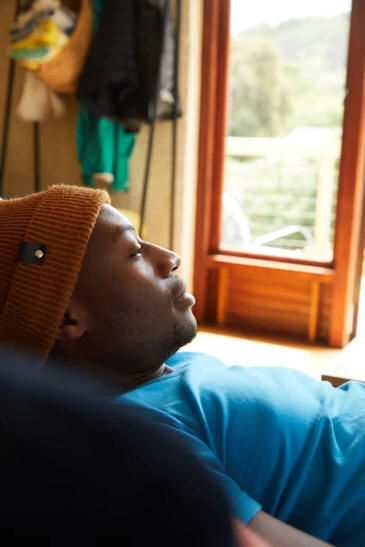The Modern
House Adult
By
Barrington H. Brennen, April 1, 2024
PDF
Format
 In
the past few decades, a strange
phenomenon has arisen that’s crippling
families and society. It is the house
adult. In
the past few decades, a strange
phenomenon has arisen that’s crippling
families and society. It is the house
adult.
Who is a house adult? A house adult is
someone old enough and capable to get
out of his parents’ home and have a job
but remains home as a freeloader
embedding his buttocks on a worn-out
sofa, and in some cases is served
breakfast, lunch, and dinner gratis by
the house owners—mom or dad. Many house
adults do not even wash their own
clothes, bed linen, or dishes.
License social worker, Kim Abraham, in
her article, “Why So Many Adult Kids
Still Live with Their Parents,” states:
“Adult children living at home is called
the “failure to launch” problem, and
it’s an epidemic these days. . . Over
time, our kids stopped learning to solve
problems for themselves. They stopped
learning how to entertain themselves.
And they look to adults to fix things
for them. Parents may help their kids
out of love and with the best of
intentions, but over time we’ve gone
from caring for our children, to
caretaking. . . Caretaking is anything
we do for our children that they can do
for themselves.”
Let me hasten to say that there are some
adults who have jobs and are living with
parents because they want to save money
to blast off on their own soon. These
adults are those who participate in
household chores and keep their personal
environment clean. They also contribute
financially to the household expenses.
These are dependable, responsible
adults.
 The
house adult is usually an irresponsible
adult who has been or is still being
enabled by her parents. I am aware of
some dynamics such as prohibitive rental
cost that can compel working adults to
stay at home longer. I am not referring
to these adults. I am dealing with lazy
adults who refuse to work or participate
in home management and who are being
enabled by their parents. The
house adult is usually an irresponsible
adult who has been or is still being
enabled by her parents. I am aware of
some dynamics such as prohibitive rental
cost that can compel working adults to
stay at home longer. I am not referring
to these adults. I am dealing with lazy
adults who refuse to work or participate
in home management and who are being
enabled by their parents.
Parents who allow their adult children
to stay at home and just lounge around
are inept parents. They are not only
doing injustice to their adult children,
but also to society. They are enabling
their adult offsprings to be dependent
and not dependable. They are training
them to become indifferent to community
development and social cohesiveness.
Anna Rita Manca in her article on Social
Cohesion states: “Social cohesion refers
to the extent of connectedness and
solidarity among groups in society. It
identifies two main dimensions: the
sense of belonging of a community and
the relationships among members within
the community itself.” It is my view
that this connectedness and solidarity
begins in the home, and it is inculcated
by parents. These parents start from an
early age teaching their children
individual responsibility and community
mindedness by requiring them to make up
their own beds and do other household
chores, go to sleep on time, when and
why to turn off their devices, etc.
The phenomenon of the modern house adult
must end. It is damaging our society.
Parents must take the bull by the horn
and begin a “get-out-my-house” movement.
Here are some suggestions:
-
Parents, you need to first admit
that your adult child(ren)
living with you should either be
living on their own; or if they
will remain for a while, be an
active participant in home care.
-
Parents, you need to require
your child to find a job, no
matter how small.
-
You can help them access
training to acquire the skills
to have a job.
-
You can stand up to your adult
child living with you and say
something like this:
“Son/daughter, I have enabled
you for too long and made you an
indolent adult. Now things are
going to change. I am giving you
six months to find your own
place to live. Three months from
now, if you choose to remain in
this home, I will be charging
you a monthly rent of $300. As
long as you are here, I will no
longer be washing your clothes,
serving you food, nor will I be
cleaning your environment. You
are an adult, and I will start treating
you as one.”
adult, and I will start treating
you as one.”
-
You can assist your child to
find a job. Help him navigate
through the process by calling
potential employers, filling out
applications, etc.
-
You can also show them how to
budget their potential income.
-
You can make a chart of chores
in which the entire household
will participate. That is, in
addition to his or her own space
(bedroom, etc.), the adult will
need to participate, along with
other family members, to keep
the house clean and tidy.
-
If the adult child is addicted
to alcohol, tobacco, marijuana,
or other substances, get help
for them. The New Life House
article, “Lazy Adults Living
With Parents: How To Support
Without Enabling,” states: “If
your child has been struggling
with a substance abuse disorder,
it’s important to be patient and
understanding as you help an
adult child living at home cope
and transition into adult life.
Substance abuse is a disorder
and needs to be treated with
compassion and understanding.
Start by seeking professional
help, such as a therapist or
support group, to help your
loved one understand and manage
the underlying causes of their
addiction.”
-
Parents don’t be lazy. You have
enabled too long. Help your
adult child create a dream and
fulfill it.
Parents, start today to get your adult
child out of your home or at least
become a respectful, responsible, and
dependable adult living in your home.
Have no more freeloaders living in your
home.
Barrington H. Brennen is a marriage and
family therapist. Send your questions or
comments to
question@soencouragement.org
or call or text 242 477 4002 or visit
www.soencouagement.org .
|
|